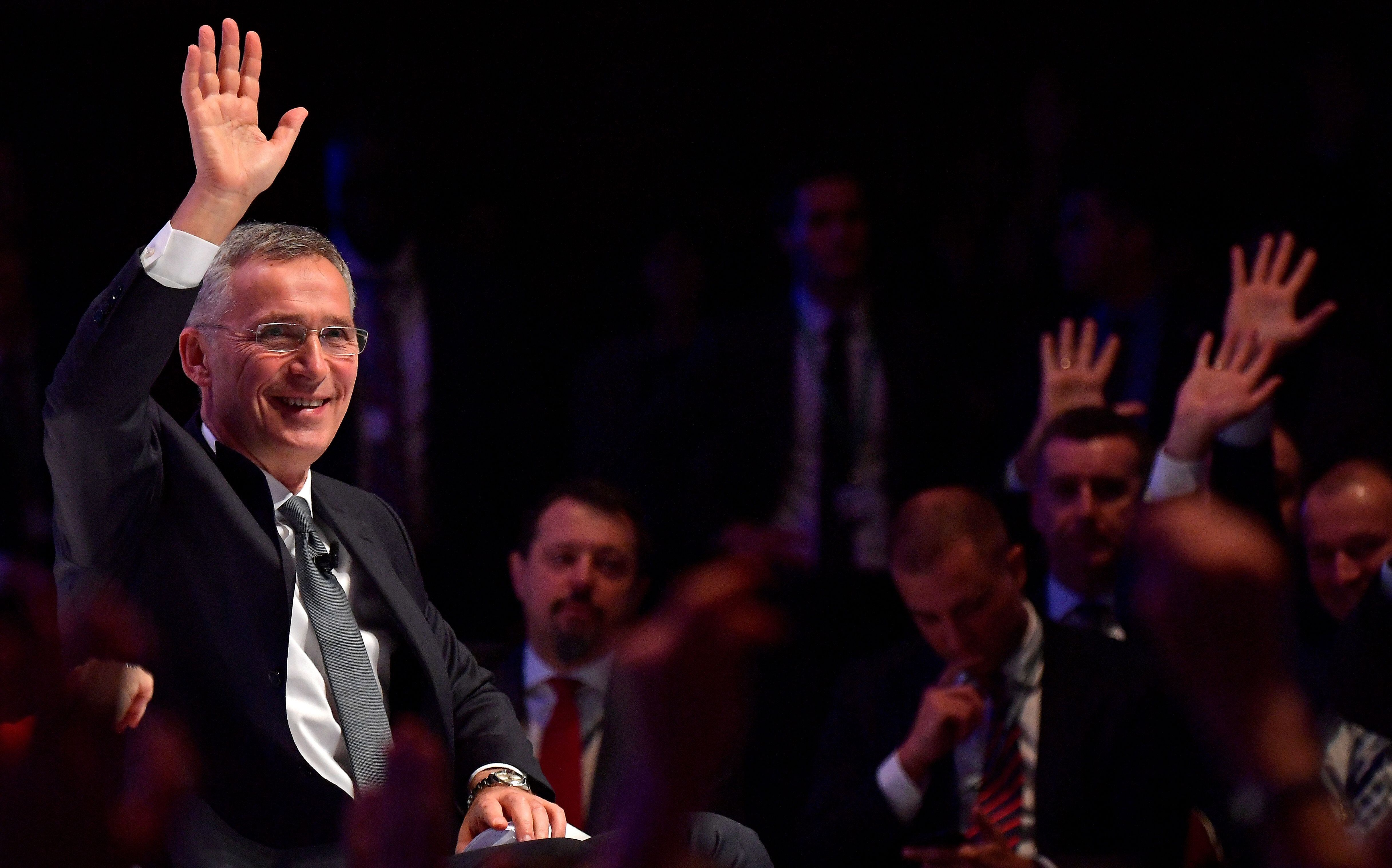LONDON – NATO will agree on a plan to respond to the new weapons and tactical threat posed by Russia and others when alliance leaders meet here on Dec. 4, British Defence Secretary Ben Wallace said opening the NATO Engages think tank event in London.
"When leaders meet tomorrow they will agree a plan for NATO's response to emerging and disruptive technology, recognising two new operational domains in space and cyber, and develop plans to confront and deter hybrid tactics," Wallace told an international audience of defense analysts and policymakers.
Emerging technologies like hypersonic missiles and quantum computing are changing the threat landscape, the defense secretary said, urging that NATO must to understand the challenges and adapt accordingly.
Wallace stayed away from responding to French President Emmanuel Macrons controversial view that the alliance was “brain dead," but he, like others in NATO, accept the need for continuing change.
RELATED

"It starts with investment in both our conventional forces which are so important to effect deterrence and in those new capabilities needed to address the challenges that lay ahead,"he said.
Some $400 billion will be spent on defense investment by European nations and Canada by 2024, but more needs to be done, he said.
“Maintain technological edge is the only way we can avoid obsolescence,” he warned. “We must be on the hunt for the next great geopolitical disrupters like climate change, or the next technological advancement that changes the game completely,” he said.
Andrew Chuter is the United Kingdom correspondent for Defense News.








